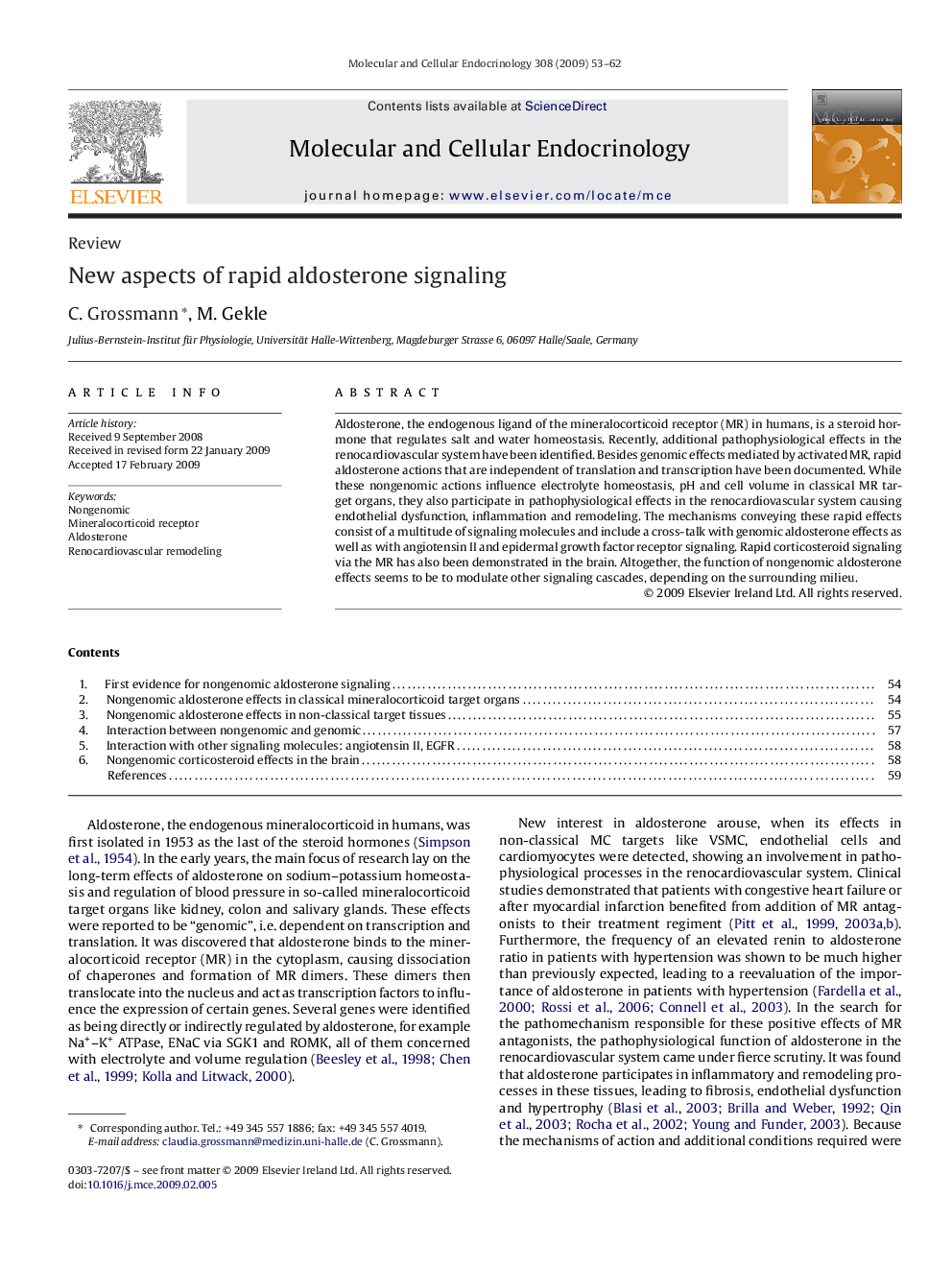| Article ID | Journal | Published Year | Pages | File Type |
|---|---|---|---|---|
| 2197287 | Molecular and Cellular Endocrinology | 2009 | 10 Pages |
Aldosterone, the endogenous ligand of the mineralocorticoid receptor (MR) in humans, is a steroid hormone that regulates salt and water homeostasis. Recently, additional pathophysiological effects in the renocardiovascular system have been identified. Besides genomic effects mediated by activated MR, rapid aldosterone actions that are independent of translation and transcription have been documented. While these nongenomic actions influence electrolyte homeostasis, pH and cell volume in classical MR target organs, they also participate in pathophysiological effects in the renocardiovascular system causing endothelial dysfunction, inflammation and remodeling. The mechanisms conveying these rapid effects consist of a multitude of signaling molecules and include a cross-talk with genomic aldosterone effects as well as with angiotensin II and epidermal growth factor receptor signaling. Rapid corticosteroid signaling via the MR has also been demonstrated in the brain. Altogether, the function of nongenomic aldosterone effects seems to be to modulate other signaling cascades, depending on the surrounding milieu.
